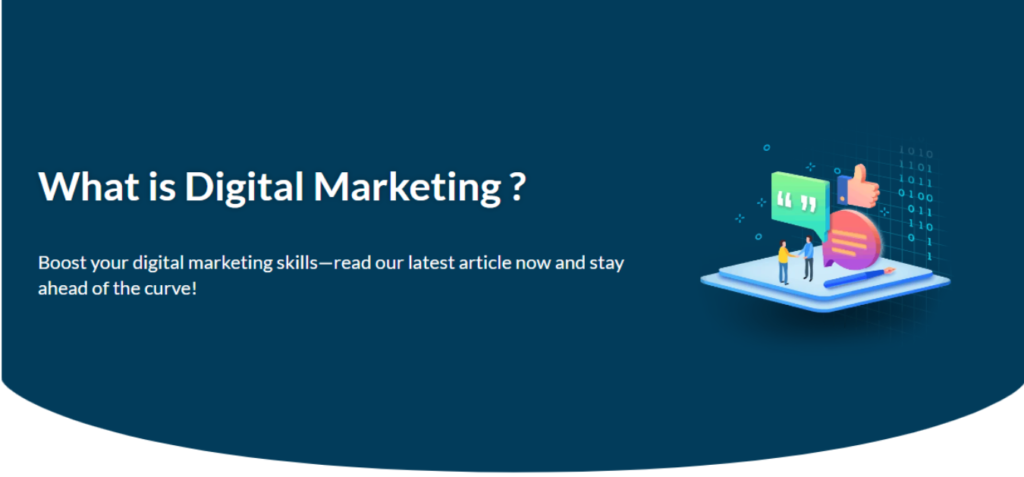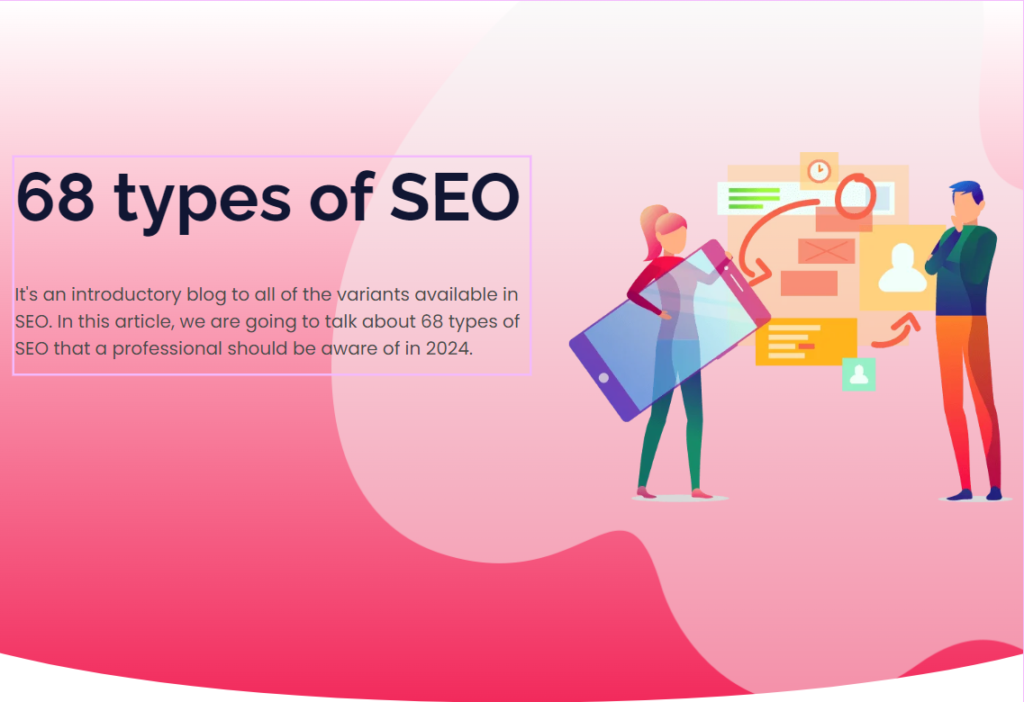Digital marketing, better known as online marketing, is the use of digital channels and the internet as an approach to promote brands and communicate with prospective customers. This includes an array of activities such as email marketing, social media advertising, web-based ads, and even text and multimedia messages. Essentially, any marketing strategy that includes digital communication is digital marketing.
Digital Marketing vs. Inbound Marketing
Digital marketing and inbound marketing are closely related but differ in approach within their applications. Digital marketing tends to focus on how an individual channel or tool in digital can be used to turn prospects into customers. For example, a brand may conduct digital marketing solely on social media platforms and give not much regard to other channels.
Inbound marketing, on the other hand, is holistic. It starts with a goal and then chooses the right tools and strategies to move toward that goal, paying attention to the journey of the customer down through the sales funnel. For example, if the goal is increasing website traffic, the inbound marketer would first turn to search engine optimization (SEO) to generate visitors-oriented content.
The takeaway is that in between digital marketing and inbound marketing, you do not need to choose because these tools work well together. Inbound gives you the structure and meaning, while digital marketing gives you the tools to attain your goals.
Why Digital Marketing Matters
Digital marketing is important because of the ease of accessibility of digital channels by people and businesses. In April 2022, 5 billion people globally had access to the internet, which gives an idea of the maximum potential digital marketing reach. Another reason is that digital marketing is cost-effective. It is ideal for small businesses with a low budget.
B2B vs. B2C Digital Marketing
The strategies vary between B2B and B2C digital marketing:
- B2B Marketing: The decision-making and sales funnels are much longer, so relationship-building strategies are more effective. B2B marketing deals with logical and evidence-based content that can be shared among decision-makers.
- B2C Marketing: The sales cycles in B2C are most often shorter and go to more emotional appeal to influence consumer behavior. B2C strategies tend to be more one-on-one with customers, and the focus can be short-term in terms of offers.
Any digital marketing strategy needs to be catered to your specific audience, be it B2B or B2C.
Types of Digital Marketing
Digital marketing has plenty of specializations, all of which provide diverse ways to reach your target audience. These include the following:
- Search Engine Optimization (SEO): It allows users to find your website more easily on SERPs by optimizing the quality of your content, rank-driving keywords, user engagement, and technical aspects like mobile-friendliness and site speed.
- Content Marketing: It is the process of making and distributing valuable content in the form of blog posts, e-books, and videos to attract and keep eyeing attention to a defined audience. On the other side, Content Marketing is strongly tagged with SEO because without quality content, high ranking on SERPs seems impossible.
- Social Media Marketing: This is the advertisement of your brand through platforms such as Facebook, X (formerly Twitter), Instagram, LinkedIn, and YouTube. The choice will depend on the target audience and the type of goal.
- Pay-Per-Click (PPC) Marketing: PPC stands for Pay-Per-Click Marketing, which means that you pay each time a user clicks your ad. One of the most famous venues from which to run PPC campaigns is Google Ads, through which ads can be placed on SERPs when your ad quality, keyword relevance, and bidding come into the acceptable range.
- Affiliate Marketing: This will involve collaboration with affiliates who market your products or services to their audiences in exchange for commissions on each sale made. It can be done on blogs, websites, and social media.
- Native Advertising: This is a kind of advertising that is camouflaged within the native environment of the platform where it is being used. Labelling of native ads is paramount in maintaining transparency with consumers.
- Influencer Marketing: This takes advantage of those with a large following, like celebrities or people who are experts in certain fields, to help you showcase your brand. Of importance here is the need to find influencers whose values align with those of your brand.
- Marketing Automation: Is the process of using software to make marketing processes easier and automatic. This will enable more efficient campaigns with personalization, and with automation likely to increase customer engagement with your brand and maintain consistency in conversation.
- Email Marketing: This is when promotional messages are sent out, which are targeted at a segmented audience via email. The main thing in email marketing is personalization. It means that the content must be relevant and useful for a person.
- Mobile Marketing: Engaging with one’s target audience through mobile devices using SMS, social media notifications, and mobile app alerts. All of the content should be optimized for mobile viewing, as most people use smartphones.
Benefits of Digital Marketing
Many benefits can be associated with digital marketing, including:
- Wide Reach: Reaching the world at large without any geographical limitation.
- Cost Efficiency: Compared to traditional means of marketing through TV or print ads, it is far more cost-effective, offering greater ROI for small businesses.
- Measurable Results: Digital marketing platforms keep track of the success rate of one’s campaigns in real-time.
- Personalization: Digital marketing helps you capture and utilize customer data to generate very personalized marketing messages.
- Customer Engagement: Digital marketing allows for real-time engagement with the target audience. This, in turn, fosters good customer relationships and brand loyalty.
- Easy Conversions: In digital marketing, immediately after seeing your advert, the customers can take action to visit your website, purchase, or join your newsletter.
Creating a Digital Marketing Strategy
Steps to an Effective Digital Marketing Strategy:
- Set SMART Goals: The goals should be well-defined, measurable, achievable, relevant, and timely.
- Identify Your Audience: It requires knowing who the target audience is to have a good campaign.
- Create a Budget: Know how to allocate based on your goals, audience, and chosen digital channels.
- Select Digital Marketing Channels: Choose channels that best align with your goals and audience.
- Refine Your Strategy: Looking at the performance of the campaign to help refine your strategy for future campaigns.
Digital Marketing Fuels Business Growth
Digital marketing needs to become a part of your overall marketing strategy. It will help you keep constant contact with your customers. It has unparalleled personalization capacity, hence fueling the growth of a business. Embracing digital marketing allows your company to realize its potentials in this age of digitization.
-
RCB’s Triumph: Finally, the IPL 2025 Champions!
-
Who is Alina Habba, former Trump advisor who files assault charges Rep. Mciver
-
Top 5 Life Insurance Companies in India (2025): Compare Premiums, Plans & Benefits
-
Top 5 Health Insurance Companies in India (2025) – Compare Plans, Benefits & Premiums
-
Russia-Ukraine war live: Trump to hold calls with Putin, Zelenskyy
-
Is Trump Administration plotting to move Gaza Palestinians to Libya? US Embassy in Tripoli denies report
-
‘Kekius Maximus Returns!’: Elon Musk Changes X Handle Name Again;
-
Belgian PM to attend inauguration of Pope Leo XIV
-
Trump's 'Big Beautiful Bill' Rejected As 5 Republican Vote Against It
-
Russia-Ukraine war: Trump says he will speak with Putin, Zelenskyy on Monday to stop ‘bloodbath’



You don’t just write — you craft experiences. And this one left me quietly moved and deeply grateful.